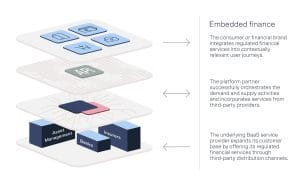success story
Casa Ley Migrates From Their Old Payment Switch to OmniPayments
Background
Casa Ley, a retailer operating multipurpose point-of-sale (POS) terminals, initially relied on HSBC as its acquiring bank to provide and manage these terminals. These terminals served various functions beyond in-store purchases, including topping up cell phones, accepting bank deposits, and facilitating bill payments. In 2000, Casa Ley decided to manage its own POS terminals to gain a negotiating edge for transaction fees, using their old payment switch system on HPE Nonstop servers.
This decision allowed Casa Ley to save significant amounts of money, as transactions were routed directly to issuing banks via their old switch, bypassing the acquiring bank.

The system supported multiple services and even extended banking services to underserved villages through local merchants.
The Challenge
A significant challenge arose when their old payment switch announced the sunset of its HPE Nonstop product by the end of 2011, necessitating a migration to their new product offering.
Casa Ley took this opportunity to reconsider its approach to POS terminal support. The company aimed to incorporate geographical redundancy for rapid failover, as system outages could render its stores cash-only if the POS system failed.
Furthermore, the lack of encryption in communications between stores and their old switch violated PCI DSS standards, which Casa Ley sought to rectify. Additionally, the retailer desired to introduce more customer services via its POS terminals, requiring modifications to all 170 store servers. After evaluating options, Casa Ley selected OmniPayments financial transaction authorization system as a solution to these challenges.
Our Approach
Casa Ley’s upgrade to OmniPayments brought numerous benefits beyond its initial objectives. The OmniPayments configuration involved two HPE Nonstop servers set up as an active/active system, with one at the retailer’s Mexican headquarters and the other located 500 miles away. Both servers actively processed transactions, sharing the transaction load. In the event of a server failure, all transactions were instantly routed to the surviving server, ensuring continuous transaction authorization services. Transaction logs on both servers were synchronized through bidirectional data replication, eliminating the need for third-party replication tools. Communication services were provided by Telmex, offering quick recovery from server outages measured in seconds. Additionally, OmniPayments introduced the use of the industry-standard ISO 8583 protocol, simplifying communication and improving reliability.
Simplified store-clerk procedures were achieved as OmniPayments now handled all POS terminal functions, including ancillary services like cell-phone topping and banking services. This led to standardized and simplified store-clerk procedures, enhancing the customer experience. OmniPayments also addressed PCI DSS compliance by implementing encryption for all transmissions between POS terminals and the authorization networks. Furthermore, the total cost of ownership was reduced due to savings in license fees compared to the previous system, which was based on transaction rates. Opsol committed to providing support for the OmniPayments system during implementation and deployment, with no daily charge for this support.
Success
Casa Ley’s upgrade to OmniPayments yielded significant benefits. The retailer achieved continuous availability of its transaction authorization system, ensuring rapid recovery from any faults, including data-center outages, within seconds. It became PCI DSS-compliant by implementing encryption for all transaction traffic. OmniPayments introduced improved industry-standard communication protocols, simplifying and streamlining communication between the sales clerk and the customer. This resulted in a more efficient and positive customer experience.
The retailer also reduced its licensing costs compared to the previous system, thanks to OmniPayments’ pricing model based on the number of HPE Nonstop processors used in the OmniPayments servers. OmniPayments, specializing in HPE Nonstop mission-critical applications, supported the implementation and offered a range of security functions, including encryption-at-rest and encryption-in-flight. OmniPayments operated around the clock, with no downtime required for maintenance or upgrades, and provided support for various disaster-recovery solutions. Overall, the transition to OmniPayments was a success for Casa Ley, delivering improved performance, compliance, and cost savings.






